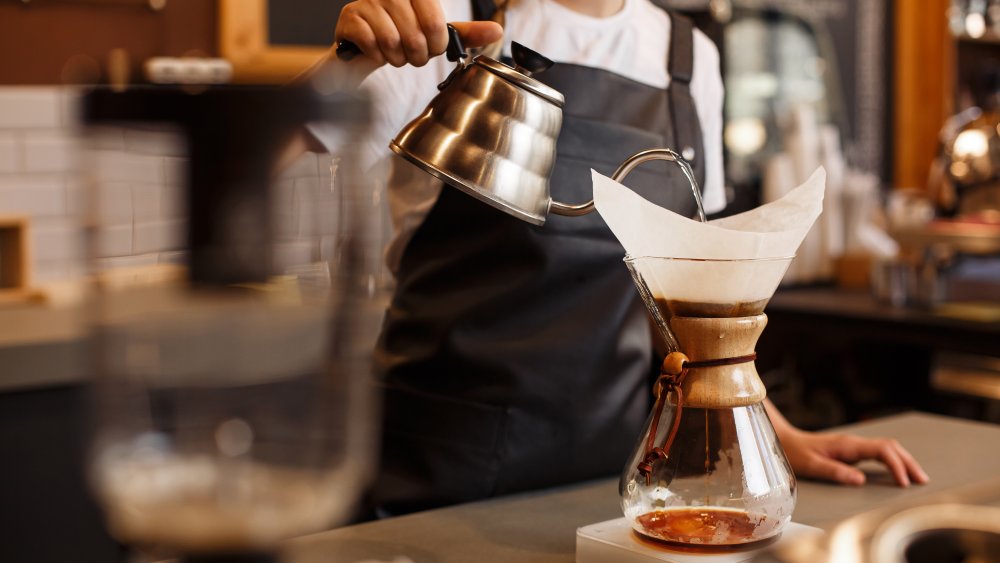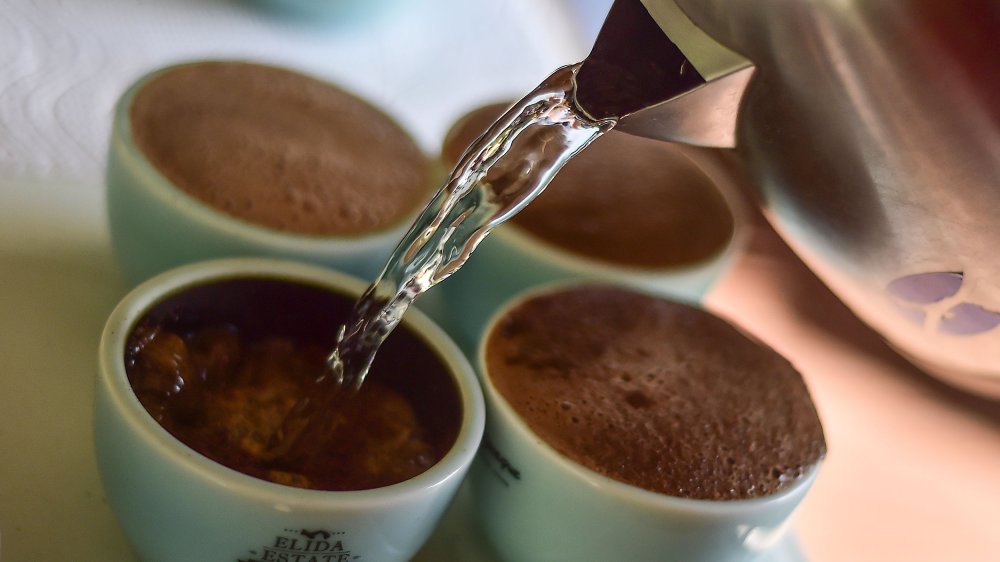You Should Never Brew Coffee With Boiling Water. Here's Why
Given the fact that coffee is some 98.75 percent water, the quality and temperature of the H2O used to brew the coffee is going to have a big impact on the finished product (via Wired). Of course, this means using water that is free of impurities that would affect its flavor.
Many coffee companies and roasters suggest using filtered water to avoid this problem, but it's also important to get the temperature of the water right. If the water is too cold, it won't adequately bring out all of the flavors and aromas in the beans and will result in a cup of coffee that is weak and sour-tasting (via Roasty Coffee). And although we often think of coffee as being served piping hot, the water used to prepare it should never be boiling. Starbucks, for example, suggests heating the water to "just off a boil," which is between 195 and 205 degrees Fahrenheit, or between 90 and 96 degrees Celcius (via Starbucks).
The drawbacks of using water that is too hot
If you use boiling water to brew coffee, it over-extracts flavors from the grounds, which will result in a bitter brew. Typically, this happens if the water used is above 205 degrees (via Java Presse).
In addition, most coffee drinkers enjoy their beverage at a temperature of 140 degrees or lower, which means that if you use water that's a bit cooler than boiling, it will cool to that temperature quicker than if you use boiling water, so you'll be able to enjoy your cup faster (via NCAUSA).
Another potential challenge is the inconvenient fact that water boils at different temperatures depending on altitude. At sea level, as we learned in school, water boils at 212 degrees Fahrenheit. However, In Denver, the mile-high city, where the altitude is some 5,000 feet, water boils at just 202 degrees. The moral of this story, then, is to use a thermometer — rather than the appearance of bubbles — to determine the heat of your water.

